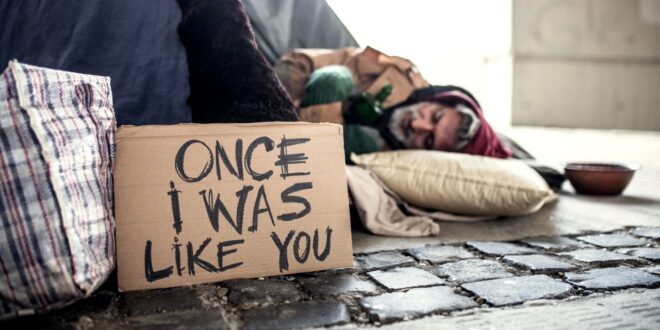People reason, “If we believe we are our brother’s or sister’s keepers, then we’ll have to provide a helping hand to those who encounter misfortune or are broken—which seems kind of socialistic.”
People reason, “We can’t give people a helping hand because everyone must pull their weight. If we help them, they’ll just become dependent upon the state. Besides, freedom isn’t for sissies—which means that the strong should be rewarded with success—and the weak should be left to flounder! That’s the American way!”
Really?
Was that the way it was with the early Pilgrims? Did everyone survive those first difficult years in America by just caring for themselves, or was there a sense of esprit de corps, where they shared “a unity of spirit and common interests and responsibilities?” Could they have survived without each other?
In fact, “the Mayflower Compact” was based upon the Covenant of the Congregation, which submitted the colony to majority rule. It was an interim measure until they obtained royal permission to settle in New England. In a time when all Western European governments were monarchies, the democratic elements of the Compact are startling. The text of the Compact is as follows:
“In the name of God, Amen. We whose names are undersigned, the loyal subjects of our dread Sovereign Lord King James, by the Grace of God of Great Britain, France, and Ireland, King, defender of the faith, etc. Having undertaken, for the glory of God and the advancement of the Christian faith and honour of our King and Country, a voyage to plant the first colony in the Northern Parts of Virginia, do by these presents solemnly and mutually in the presence of God and one another, covenant and frame such just and equal laws, ordinances, acts, constitutions and offices, from time to time shall be thought most meet and convenient for the general good of the colony, unto which we promise all due submission and obedience. In witness whereof we have hereunder subscribed our names at Cape Cod the 11th of November, in the year of the reign of our Sovereign Lord King James, of England, France and Ireland the eighteenth, and of Scotland the fifty-fourth. Anno Domini 1620” (Millsgen.com).
Ultra Capitalism
With ultra capitalism, everyone focuses on helping themselves rather than those who are squeezed by misfortune or competition. To a large extent, we have lost the idea of community that characterized our founding fathers.
Many view capitalism as God’s way, which espouses that people should only be given what they deserve and no more! For these, mercy is a “fly in the soup” because it requires empathy, entering into another’s story, and generosity!
Rugged individualism is foreign to Hebrew scripture and the concept of community that was pervasive among first-century Christians.
Writer Jeff Noblit refers to the significance of community for people of faith when he says:
“When you think about western civilization, it has an emphasis on what [we] would call rugged individualism, and there are some virtues in that. There is goodness in a person looking [out for himself, or herself] and supplying [their] own needs, and not living off the charities or donations of others. We are losing some of that today in our country. But, if you aren’t careful, if you don’t wash the rugged individualism of western culture in the truth of the scripture, there can be a lot of error in it. As a matter of fact, rugged individualism can be very anti-Christian because God saved you from being an island. In Christianity, no man is an island. He saved us to belong. We ought to change our vocabulary about church. Church is not where you attend, nor is it where you go. Church is an entity, a body, you ‘belong’ to. This is the biblical understanding.”*
The Response to Cain’s Question
The response to Cain’s question, “Am I my brother’s keeper?” should be a resounding yes, especially among Christians, “Don’t forget to do good and to share with those in need. These are the sacrifices that please God” (Hebrews 13:16, NLT).
“The godly care about the rights of the poor; the wicked don’t care” (Proverbs 29:7, NLT).
“If you help the poor, you are lending to the Lord — and he will repay you!” (Proverbs 19:17, NLT).
“If your enemies are hungry, feed them. If they are thirsty, give them something to drink. In doing this, you will heap burning coals of shame on their heads.” Don’t let evil conquer you, but conquer evil by doing good” (Romans 12:20-21, NLT).
If the concepts of altruism, empathy, and community care no longer fit into American thinking, it is because America has journeyed to a selfish, brutal, me-istic place of individualism that promotes the bumper sticker philosophy of winning. You’ve probably seen it, “Whoever ends up with the most toys wins!” Winning is defined by what we possess, as opposed to what possesses us.
If you liked this, you might also like Doing Life Together | How Individualism Corrupts the Church’s Mission
Rich DuBose writes from Northern California.
*AnchoredInTruth website.
© 2002 - 2024, AnswersForMe.org. All rights reserved. Click here for content usage information.



